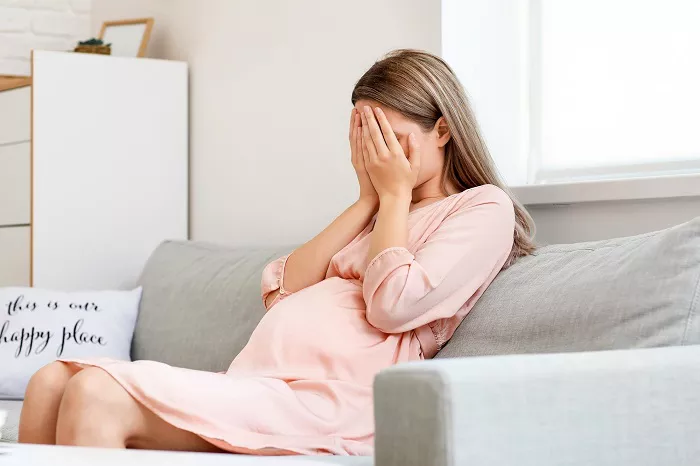When it comes to protecting pregnant women and their babies from COVID-19, the scientific message is clear: the vaccine helps — and it saves lives.
Yet, recent political decisions have stirred confusion. Robert F. Kennedy Jr., who serves as Health and Human Services Secretary and is not a medical doctor or scientist, publicly stated that healthy pregnant women no longer need COVID boosters. But top infectious disease experts and leading health institutions, like the Centers for Disease Control and Prevention (CDC), strongly disagree. Here’s what the research actually shows.
Pregnancy Increases the Risk of Severe COVID Illness
From the earliest days of the pandemic, doctors noticed that pregnant women were more vulnerable to severe COVID-19 than other healthy women their age. A global review of over 400 studies confirmed that pregnant women infected with COVID were significantly more likely to be hospitalized, require intensive care, or even die from the virus.
Dr. Neil Silverman, an infectious disease expert at UCLA, says that even today, COVID continues to cause serious complications in pregnant women. “No matter what the politics say, the science is the science,” he explains. “Pregnant patients are at higher risk.”
Why Pregnancy Changes the Immune Response
Pregnancy naturally changes a woman’s immune system to protect the developing baby. Virologist Dr. Angela Rasmussen explains that this shift — a kind of “natural immune suppression” — makes it harder for pregnant women to fight off infections, including COVID-19.
That’s not all. Being pregnant also makes women five times more likely to develop blood clots. Add a COVID infection to that mix, and the risk grows. COVID can attack blood vessels, making clots more likely — especially in the placenta, where blood flow is critical for the baby’s development.
COVID Can Affect the Placenta and the Baby
The placenta is vital for getting oxygen and nutrients to the fetus. But COVID-related inflammation or blood clots can interfere with this process. Dr. Mary Prahl, a pediatrician at UCSF, says these blockages can increase the risk of stillbirth, preeclampsia (dangerously high blood pressure), preterm labor, and other pregnancy complications.
She adds, “Anything that disrupts blood flow in the placenta can impact fetal growth and health.”
Vaccination Helps Moms and Babies — Even After Birth
Luckily, vaccines — especially mRNA COVID vaccines — offer strong protection. Studies show they’re safe for pregnant women and don’t cause harmful side effects. Even better, moms who get vaccinated pass on protective antibodies to their babies.
Dr. Prahl co-authored one of the early studies confirming this effect. Later research published in Nature Medicine found that babies born to vaccinated mothers were significantly less likely to be hospitalized for COVID during their first months of life.
CDC data backs this up: nearly 9 out of 10 infants who were hospitalized for COVID had mothers who weren’t vaccinated during pregnancy.
What About Immunity from a Past Infection?
Some people wonder if a past COVID infection is enough to protect them and their babies. Experts say no. Immunity from past infection doesn’t last forever — and it doesn’t offer the same level of protection as a vaccine booster does, especially against new variants.
“Even with some level of immunity, COVID can still land pregnant women in the hospital,” said Dr. Sallie Permar of Weill Cornell Medicine.
Science vs. Politics: The Vaccine Guidance Debate
The recent announcement by Kennedy to remove the COVID vaccine from the CDC’s recommended schedule for pregnant women shocked medical professionals. The decision bypassed the usual scientific review process and left many questioning the message it sends to the public.
To make matters worse, without this official recommendation, insurance companies may stop covering the vaccine for pregnant women — leaving many to pay out-of-pocket.
Dr. Silverman said he sympathizes with patients who face financial barriers. “I can’t tell a family that the vaccine is more important than feeding their kids,” he said. But when possible, he and his colleagues continue to recommend that pregnant patients get the shot — for their own safety and for their newborns.
Protecting the Most Vulnerable
Newborns can’t get vaccinated until they’re at least 6 months old. Until then, their only protection is the immunity passed to them from a vaccinated mother.
“Newborns are completely naïve to COVID exposure,” Silverman explained. “That’s why vaccinating pregnant women to protect their babies is still such an important goal.”
Conclusion
If you’re pregnant or planning to be, getting a COVID booster is still one of the best ways to protect yourself and your baby from serious complications. The science is clear, even if the politics are not.


